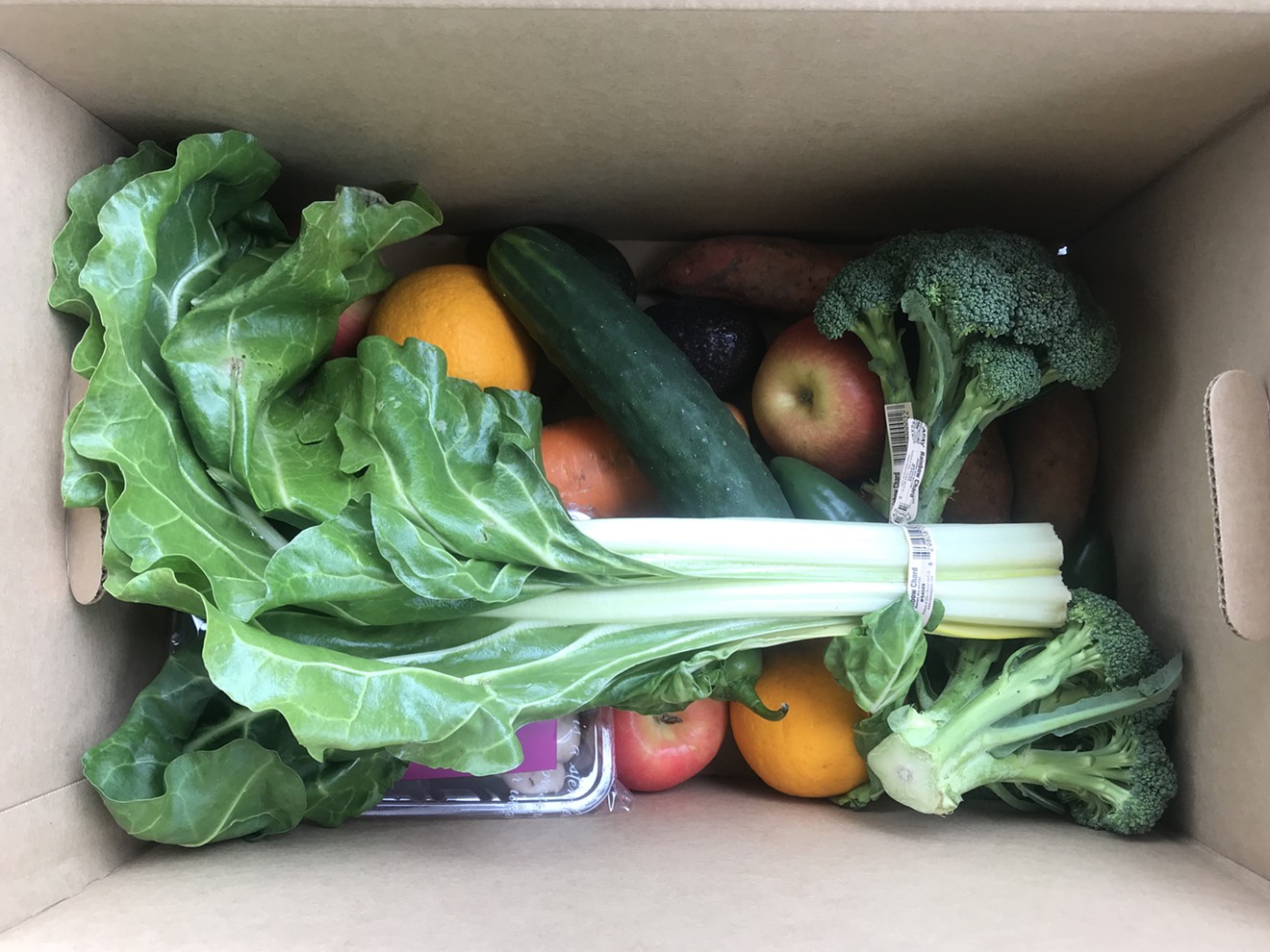For the next three months, residents in Oak Cliff will have one less place to buy groceries as the local Save U More grocery closes for renovations. The city has invested nearly $3 million into the store as part of an effort to bring more options to an area with little fresh produce. The store has been struggling, and some of its customers say it was often poorly stocked. Meanwhile, as the city and owners struggle to make the store a success, other food distribution models are being overlooked.
When City Hall was considering buying the store outright in August, City Council member Adam Bazaldua said the council should instead consider investing in other innovative solutions to feed the hungry in Dallas’ food deserts. "Why are we putting money in it again instead of investing in other innovative ideas around the city to close those food insecurity gaps?" Bazaldua said.
Food deserts are places where people don’t have access to healthy food options within a five-mile radius of their homes.
Danae Gutierrez, co-founder of Harvest Project Food Rescue, has been helping provide produce to underserved communities in Dallas since 2014.
She realized there was a lack of fresh fruits and vegetables in Oak Cliff and began reaching out to warehouses that sold produce to seek donations. They found that these warehouses were tossing out perfectly edible food that wasn't quite up to snuff for sale to choosy retailers. Harvest Project Food Rescue started taking the produce these warehouses would have thrown out and distributing it to communities in need.
Gutierrez said she doesn’t think grocery stores are a lost cause for food deserts, but that they need to be more than just a place to buy food. She said they need to be an expansion of the community, like schools are or libraries. “Not just ‘Look, you have a shitload of canned goods that you can ask for.’ I don’t think that’s the answer,” she said.
The same year Gutierrez founded the Harvest Project, a man named Daron Babcock was working on his own way of providing food to South Dallas residents.
Babcock told the Observer that when he moved to South Dallas, many of the people he met were sick. Then, he realized he lived in a food desert. So, he started Bonton Farms, which grows food for the community, in his backyard. He recently opened a second, larger location.
Davante Peters, an activist in Highland Hills who is running for the District 8 City Council seat, said he would like to see a community garden in the area, something similar to Bonton Farms. “I think maybe, in addition, initiating a weekly farmers market may be a step in that direction, but no grocery store is unacceptable,” he said. Peters and other activists in Highland Hills have been working on creating a community garden in the area.
Southern Methodist University associate professor Owen Lynch created The Seedling Farm to provide low-cost plants to South Dallas. Open year-round, the farm provides a variety of plants at a nominal cost along with professional in-person advice.
Food deserts can be found across the country. Some states, though, have incentivized getting rid of them.
Last year, Virginia Gov. Ralph Northam signed measures creating the Virginia Food Access Investment Program and Fund, according to CBS affiliate WTKR.
The program provides grants of $5,000 to $50,000 to support business development, construction, rehabilitation, equipment upgrades or expansion of grocery stores, small food retailers or innovative food retail projects that increase food access in underserved communities. There was similar legislation in Texas, but it failed to pass in 2017.
Four years ago, the city offered a $3 million incentive to grocers to build in an Oak Cliff food desert, but no one took it.
Gutierrez said plenty of people in the community are interested in helping provide for Dallas' food deserts, but the city needs to partner with and invest in them.
[
{
"name": "Air - MediumRectangle - Inline Content - Mobile Display Size",
"component": "18855504",
"insertPoint": "2",
"requiredCountToDisplay": "2"
},{
"name": "Editor Picks",
"component": "17105533",
"insertPoint": "4",
"requiredCountToDisplay": "1"
},{
"name": "Inline Links",
"component": "18349797",
"insertPoint": "8th",
"startingPoint": 8,
"requiredCountToDisplay": "7",
"maxInsertions": 25
},{
"name": "Air - MediumRectangle - Combo - Inline Content",
"component": "17105532",
"insertPoint": "8th",
"startingPoint": 8,
"requiredCountToDisplay": "7",
"maxInsertions": 25
},{
"name": "Inline Links",
"component": "18349797",
"insertPoint": "8th",
"startingPoint": 12,
"requiredCountToDisplay": "11",
"maxInsertions": 25
},{
"name": "Air - Leaderboard Tower - Combo - Inline Content",
"component": "17105535",
"insertPoint": "8th",
"startingPoint": 12,
"requiredCountToDisplay": "11",
"maxInsertions": 25
}
]












